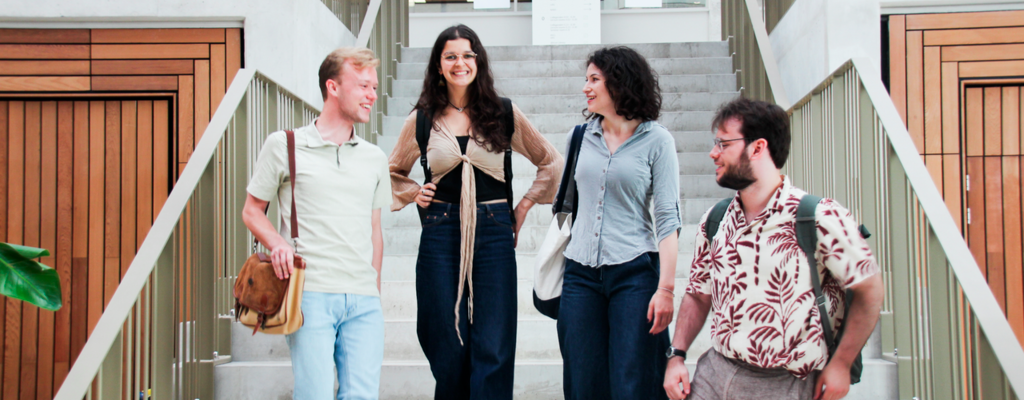The unique strength of a Humanities graduate
Graduates in Humanities possess talents that are highly valued in the job market.
In practice, alumni find that they stand out thanks to well-developed intercultural skills, written communication, and social awareness. They also excel in analytical thinking and creativity. Intercultural skills are most frequently mentioned by alumni of International Relations (47%), Area Studies (71%) and Linguistics (41%). Written communication is the key strength for alumni of European Languages programmes (50%). For Philosophy (58%) and History (41%) alumni, it’s analytical thinking. Arts and Culture Studies alumni (49%) distinguish themselves through creativity, while Media Studies alumni (49%) stand out for their critical, conscious and active use of media. Alumni of Classics and Ancient Studies (42%) cite programme-specific skills as their strongest asset, and Religious Studies alumni (75%) highlight social awareness.

According to alumni, academic skills such as written communication, selecting and processing complex information, and analytical and research-based working are particularly well developed during their studies. These competencies have direct value in the daily practice of a wide range of roles.
Nearly half (49%) of alumni found jobs where the employer specifically required a degree in their own or a related Humanities discipline. For 40% of alumni, no specific field of study was required, and 9% were hired for roles that asked for a completely different academic background. This shows that Humanities graduates can apply their skills in a wide range of professional contexts!

More experience = more opportunities
Many students enrich their time at university by gaining relevant work experience (60%), taking on committee or board roles (54%), or choosing an internship (43%) or experience abroad (33%). These extracurricular activities later provide an advantage in the job market. They help strengthen essential workplace skills such as teamwork, verbal communication and problem-solving. Alumni with internship experience, relevant work experience or leadership roles are employed more quickly and at a higher level than those without such experience.

An internship gives you an edge
Of the alumni who completed an internship during their studies, 16% continued working at their internship organisation and 5% found a job through their internship network. Alumni with internship experience are also more likely to end up in roles at higher professional or academic level than those without. Even after two and a half years, alumni with internship experience are more often active at higher professional or academic level than their peers without internship experience.

